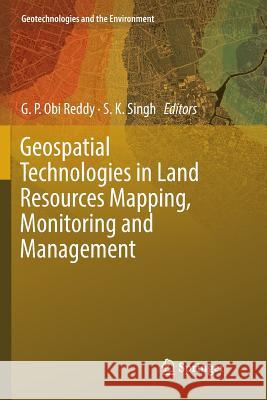Geospatial Technologies in Land Resources Mapping, Monitoring and Management » książka
topmenu
Geospatial Technologies in Land Resources Mapping, Monitoring and Management
ISBN-13: 9783030087708 / Angielski / Miękka / 2019 / 638 str.
Kategorie BISAC:
Wydawca:
Springer
Seria wydawnicza:
Język:
Angielski
ISBN-13:
9783030087708
Rok wydania:
2019
Dostępne języki:
Numer serii:
000379237
Ilość stron:
638
Waga:
0.91 kg
Wymiary:
23.39 x 15.6 x 3.4
Oprawa:
Miękka
Dodatkowe informacje:
Wydanie ilustrowane











